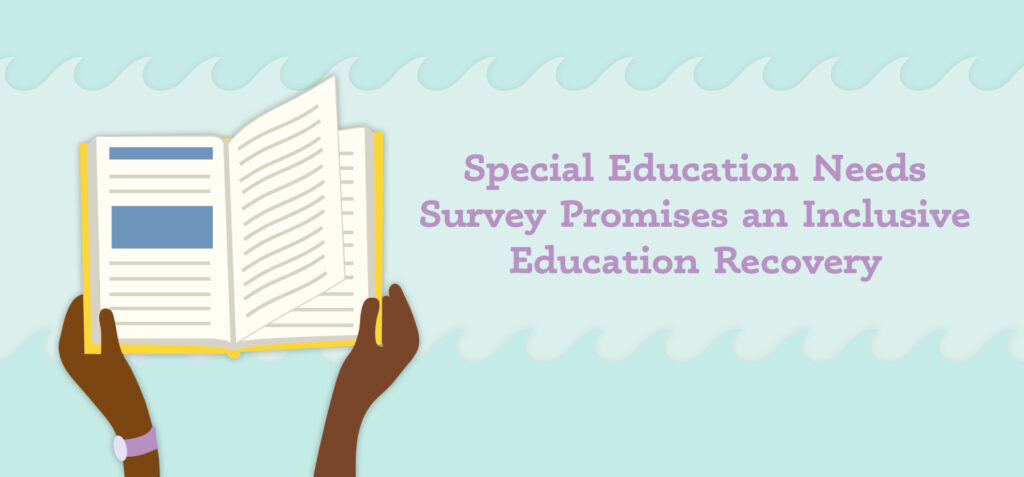Recognized for its focused and diligent work promoting literacy in the Eastern Caribbean, Hands Across the Sea will partner with the Organisation of Eastern Caribbean States on a groundbreaking multinational Special Education Needs (SEN) Survey.
The assessment, which is being deployed under the leadership of the Global Partnership for Education-funded OECS PEARL (Program for Educational Advancement and Relevant Learning), will document the prevalence of disability and SEN in the 9 OECS Member States: Saint Kitts and Nevis, Antigua and Barbuda, Dominica, Saint Vincent and the Grenadines, Saint Lucia, Grenada, Anguilla, Montserrat, and British Virgin Islands.
The SEN Survey is part of a larger re-envisioning of education in the region. It’s the result of a multi-year policy reform initiative from the OECS with a guiding vision entitled Every Learner Succeeds.
Our organization’s capacity to serve and support the SEN is the result of more than a decade of supporting literacy in the region. Across 6 countries, Hands has developed a reputation with school administrators, educators, students, families, and community leaders for our consistency, reliability, and care in applying expert on-site leadership and literacy support. The relationships that we have established will help expedite the survey implementation with key leaders across the area.
Closing Learning Gaps for All Children
Hands Across the Sea applauds the SEN Survey launch at this critical time. At present, humanitarian groups worldwide are calling for more inclusive design and delivery approaches to education. Even before the COVID-19 pandemic, children with disabilities were among the most disadvantaged, facing increased exposure to abuse and discrimination and reduced access to services in many parts of the world (UNICEF, 2020). While learning losses caused by the compounding impacts of COVID-19 have been devastating for all students, children with special needs—and their families—have increased risks due to the reduced access to critical services.
While there is a plethora of information and data being accumulated to document the impacts of the pandemic on children and students, children with special education needs are at a heightened risk of missing out on mitigation efforts due to the lack of inclusive data available. A recent report from UNICEF detailed the dilemma and the gravity of the gap. The report indicated, “Children and adults with disabilities are likely to remain invisible in data collection efforts, unless dedicated measures are put in place to make such efforts disability-exclusive … Documenting such disruptions along with mitigation measures is central to spotlighting the immediate and long-term interventions that must be put in place to ensure the safety and well-being of all children … Moreover, children with disabilities and their families are more likely to live in poverty, and they are overrepresented among the homeless population and those living in residential care and shelters, which further exacerbates their marginalization.”
This survey will shed light on literacy concerns among children of the Eastern Caribbean, so that needs of all learners can be assessed and the appropriate training and services can be deployed. The survey has three critical goals: 1) To provide data on the prevalence of childhood disabilities and SEN; 2) to use the data to create recommendations and an action plan for addressing identified gaps in the facilities and resources available to students with disabilities and SEN; and 3) to establish a data collection system for the ongoing collection of data on students with disabilities and SEN.
The OECS is dedicated to serving all children in the region by identifying children with disabilities and special needs not just in school, but in all of life. In a recent press release, they indicated that the OECS Commission “calls on members of the public to be more conscientious and sensitive to people with special needs.”
A Growing Relationship with the OECS
Hands Across the Sea has grown its relationship with the OECS for several years. In 2020, we signed a Memorandum of Understanding with the OECS Eastern Management Unit (OECS EDMU). Today, we maintain our position as an independent NGO and serve as an implementation partner to the PEARL initiative. We also hold a seat on the OECS Regional Education Group alongside Global Partners for Education (GPE), World Bank, USAID, UNICEF, UNESCO, the European Union (EU), University of the West Indies (UWI), Caribbean Disaster Emergency Management Agency (CDEMA), Caribbean Development Bank (CDB), and the Caribbean Union of Teachers (CUT).
Hands Across the Sea is honored to partner with the OECS to serve students of all abilities and to assist them in the implementation of the SEN Survey.
For more information on this initiative from the OECS, visit https://pressroom.oecs.org/the-oecs-announces-efforts-to-support-students-with-special-needs ).


